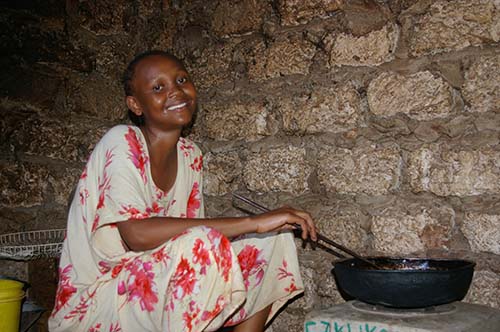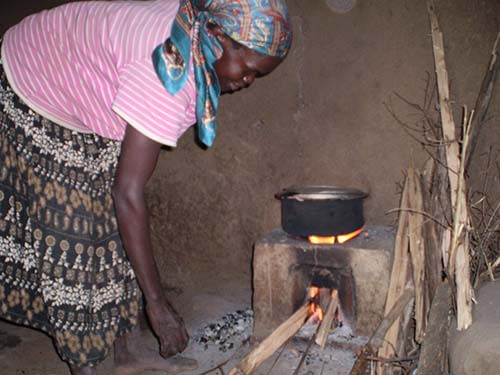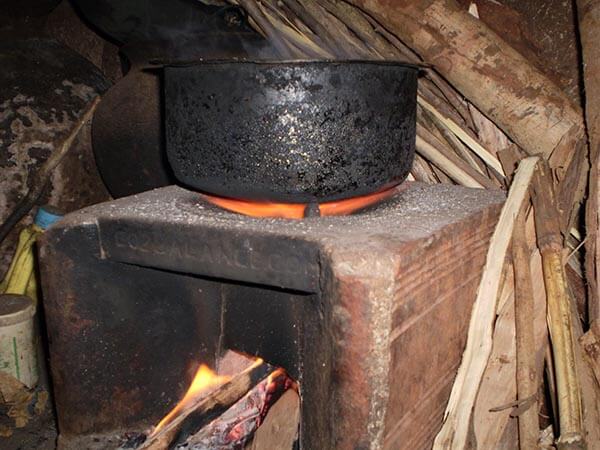Improved Cookstove Projects
These projects build fuel efficient cook stoves to families throughout eastern parts of Sub Sahara Africa. The rural population of many areas of Africa live in very poor conditions and mainly use forest gathered wood as their primary means of cooking and heating. This places pressure on the local forests affecting wildlife which can then be displaced.
These new brick stoves replace the inefficient “three stone fires” and are provided to the communities free of charge. The stoves halve the wood fuel used and on average prevent three tonnes of CO2 from being emitted each year.
In addition to CO2 reductions it also provides families with a cost and time effective method to cook with. The reduced need for firewood helps to prevent deforestation, creating knock on benefits to the wildlife in terms of habitat and flood prevention. It is also a healthier method of cooking as it reduces in-door smoke by half. In-door smoke is a serious problem in Africa and the World Health Organisation dubbed it the “kitchen killer”, as it is responsible for 1.9 million deaths in Africa every year.

Social and Community Benefit
- Reduced poverty, as the new stoves reduce annual expenditure on wood and wood collecting permits
- Reduced adverse health effects associated with indoor air pollution
- Reduced cooking and wood collection time; householders can spend more time on other household tasks, as well as schooling and supervising children
- Reduced deforestation and degradation of surrounding forests
- Reduced soil erosion and nutrient loss

UN Sustainable Development Goals
In 2016 the UN launched their Sustainable Development Goals, a set of 17 measurable Sustainable Development Goals (SDGs), ranging from ending world poverty to achieving gender equality and empowering women and girls by 2030 – sustainabledevelopment.un.org The project supports many of the Sustainable Development Goals set by the UN, in particular:



